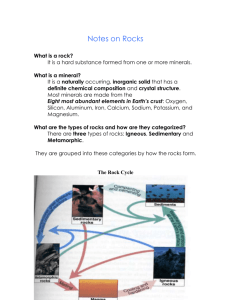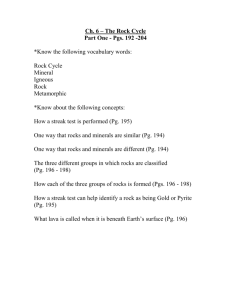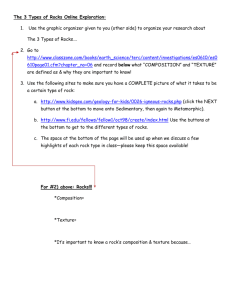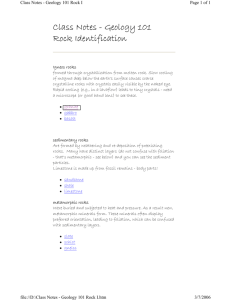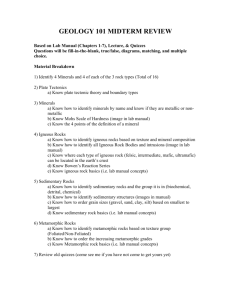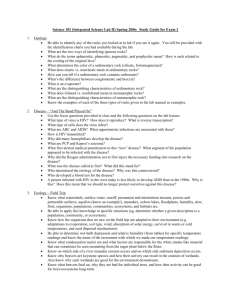Rock Cycle Unit Vocabulary 1. lithosphere – rigid, top layer of Earth
advertisement
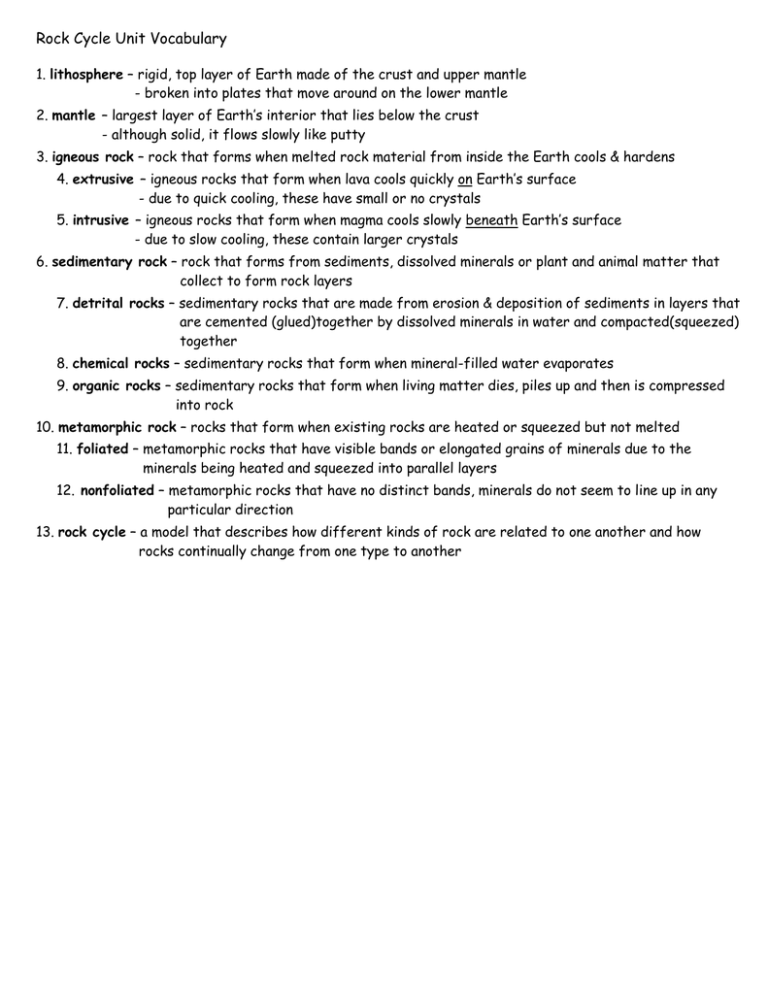
Rock Cycle Unit Vocabulary 1. lithosphere – rigid, top layer of Earth made of the crust and upper mantle - broken into plates that move around on the lower mantle 2. mantle – largest layer of Earth’s interior that lies below the crust - although solid, it flows slowly like putty 3. igneous rock – rock that forms when melted rock material from inside the Earth cools & hardens 4. extrusive – igneous rocks that form when lava cools quickly on Earth’s surface - due to quick cooling, these have small or no crystals 5. intrusive – igneous rocks that form when magma cools slowly beneath Earth’s surface - due to slow cooling, these contain larger crystals 6. sedimentary rock – rock that forms from sediments, dissolved minerals or plant and animal matter that collect to form rock layers 7. detrital rocks – sedimentary rocks that are made from erosion & deposition of sediments in layers that are cemented (glued)together by dissolved minerals in water and compacted(squeezed) together 8. chemical rocks – sedimentary rocks that form when mineral-filled water evaporates 9. organic rocks – sedimentary rocks that form when living matter dies, piles up and then is compressed into rock 10. metamorphic rock – rocks that form when existing rocks are heated or squeezed but not melted 11. foliated – metamorphic rocks that have visible bands or elongated grains of minerals due to the minerals being heated and squeezed into parallel layers 12. nonfoliated – metamorphic rocks that have no distinct bands, minerals do not seem to line up in any particular direction 13. rock cycle – a model that describes how different kinds of rock are related to one another and how rocks continually change from one type to another
